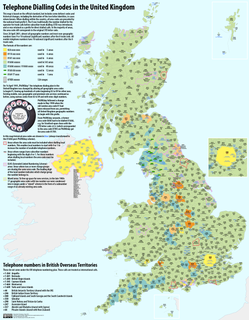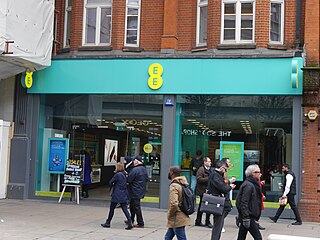| Vodafone Ltd v BT Plc | |
|---|---|
 | |
| Court | Court of Appeal |
| Citation(s) | [2010] EWCA Civ 391 |
| Keywords | |
| Telecommunications | |
Vodafone Ltd v British Telecommunications Plc is an EU law case relevant for UK enterprise law, concerning telecommunications.
| Vodafone Ltd v BT Plc | |
|---|---|
 | |
| Court | Court of Appeal |
| Citation(s) | [2010] EWCA Civ 391 |
| Keywords | |
| Telecommunications | |
Vodafone Ltd v British Telecommunications Plc is an EU law case relevant for UK enterprise law, concerning telecommunications.
Vodafone argued that Ofcom should not subject it to price controls. Ofcom had found that Vodafone had significant market power in their networks for mobile call termination (a caller on one network is connected to a mobile recipient on another network). It capped Vodafone’s charges for wholesale service of mobile call termination for four years, reducing average charges gradually. BT appealed to the CAT, arguing the price controls were set too high. The CAT referred to the Competition Commission. The Tribunal found before that under the Communications Act 2003 section 195 it could direct Ofcom to reset price controls for a four year period. It was argued that the CAT had no such power when a period had already elapsed.
Lloyd LJ, Moore-Bick LJ and Richards LJ held the Competition Appeal Tribunal had no power to direct Ofcom to impose revised price controls on a retrospective basis. Under CA 2003 section 195(5) it was clear there was no power to direct Ofcom to do something it would otherwise have no power to do. Under section 45(10)(e) Ofcom had the power to revoke or modify conditions that were in force, but that did not include a power to modify a condition with retrospective effect.
Local loop unbundling is the regulatory process of allowing multiple telecommunications operators to use connections from the telephone exchange to the customer's premises. The physical wire connection between the local exchange and the customer is known as a "local loop", and is owned by the incumbent local exchange carrier. To increase competition, other providers are granted unbundled access.
A SIM lock, simlock, network lock, carrier lock or (master) subsidy lock is a technical restriction built into GSM and CDMA mobile phones by mobile phone manufacturers for use by service providers to restrict the use of these phones to specific countries and/or networks. This is in contrast to a phone that does not impose any SIM restrictions.

The Office of Communications, commonly known as Ofcom, is the government-approved regulatory and competition authority for the broadcasting, telecommunications and postal industries of the United Kingdom.

Vodafone Group Plc is a British multinational telecommunications company. Its registered office and global headquarters are in Newbury, Berkshire, England. It predominantly operates services in Asia, Africa, Europe, and Oceania.

Telephone numbers in the United Kingdom are administered by the Office of Communications (Ofcom). For this purpose, Ofcom established a telephone numbering plan, known as the National Telephone Numbering Plan, which is the system for assigning telephone numbers to subscriber stations.
The Competition Commission was a non-departmental public body responsible for investigating mergers, markets and other enquiries related to regulated industries under competition law in the United Kingdom. It was a competition regulator under the Department for Business, Innovation and Skills (BIS). It was tasked with ensuring healthy competition between companies in the UK for the ultimate benefit of consumers and the economy.
Vodafone Limited is a British telecommunications services provider, and a part of Vodafone Group Plc, the world's second-largest mobile phone company. Vodafone is the third-largest mobile network operator in the United Kingdom, with 16.9 million subscribers as of November 2021, after EE and O2, followed by Three.
The Competition Appeal Tribunal (CAT) of the United Kingdom was created by Section 12 and Schedule 2 to the Enterprise Act 2002 which came into force on 1 April 2003. The Competition Service is an executive non-departmental public body which was created as a support body for the Competition Appeal Tribunal.
The termination rate is one of the three components in the cost of providing telephone service, and the one subject to the most variation.
Openreach Limited is a company wholly owned by BT plc, that maintains the telephone cables, ducts, cabinets and exchanges that connect nearly all homes and businesses in the United Kingdom to the national broadband and telephone network. It was established in 2006 following an agreement between BT and the UK's telecoms regulator, Ofcom, to implement certain undertakings, pursuant to the Enterprise Act 2002, to ensure that rival telecom operators have equality of access to BT's local network.

The Roaming Regulation (EU) 531/2012 with later amendments and implementing regulations, regulate the imposition of roaming charges within the European Economic Area (EEA), which consists of the member states of the European Union, Iceland, Liechtenstein and Norway. They regulate both the charges mobile network operator can impose on its subscribers for using telephone and data services outside of the network's member state, and the wholesale rates networks can charge each other to allow their subscribers access to each other's networks.

Due to economy of scale property of telecommunication industry, sharing of telecom infrastructure among telecom service providers is becoming the requirement and process of business in the telecom industry where competitors are becoming partners in order to lower their increasing investments. The degree and method of infrastructure sharing can vary in each country depending on regulatory and competitive climate.

United Kingdom enterprise law concerns the ownership and regulation of organisations producing goods and services in the UK, European and international economy. Private enterprises are usually incorporated under the Companies Act 2006, regulated by company law, competition law, and insolvency law, while almost one third of the workforce and half of the UK economy is in enterprises subject to special regulation. Enterprise law mediates the rights and duties of investors, workers, consumers and the public to ensure efficient production, and deliver services that UK and international law sees as universal human rights. Labour, company, competition and insolvency law create general rights for stakeholders, and set a basic framework for enterprise governance, but rules of governance, competition and insolvency are altered in specific enterprises to uphold the public interest, as well as civil and social rights. Universities and schools have traditionally been publicly established, and socially regulated, to ensure universal education. The National Health Service was set up in 1946 to provide everyone with free health care, regardless of class or income, paid for by progressive taxation. The UK government controls monetary policy and regulates private banking through the publicly owned Bank of England, to complement its fiscal policy. Taxation and spending composes nearly half of total economic activity, but this has diminished since 1979.
The British media company Sky UK has incurred criticism over the years, much of it centred on overcharging, anti-competitive practices, and the business practices and undue political influence of its one-time majority owner News Corporation.
Vodafone India was the Indian subsidiary of UK-based Vodafone Group plc and was a provider of telecommunications services in India with its operational head office in Mumbai. As of March 2018, Vodafone India had a market share of 21% and with its merger with Idea, the collective Vodafone Idea network has approximately 375 million subscribers and is the Third largest mobile telecommunications network in India.

Vi or Vodafone Idea Limited is an Indian telecom operator with its headquarters based in Mumbai and Gandhinagar. It is a pan-India integrated GSM operator offering 2G, 3G, 4G, 4G+, VoLTE, and VoWiFi service.

Uber BV v Aslam [2021] UKSC 5 is a landmark case in UK labour law and company law on employment rights. The UK Supreme Court held the transport corporation, Uber, must pay its drivers the national living wage, and at least 28 days paid holidays, from the time that drivers log onto the Uber app, and are willing and able to work. The Supreme Court decision was unanimous, and upheld the Court of Appeal, Employment Appeal Tribunal, and Employment Tribunal. The Supreme Court, and all courts below, left open whether the drivers are also employees but indicated that the criteria for employment status was fulfilled, given Uber's control over drivers.

EE Ltd v Office of Communications [2017] EWCA Civ 1873 is a UK enterprise law case, concerning telecommunications.

Telefonica O2 UK Ltd v British Telecommunications plc [2014] UKSC 42 is a UK enterprise law, concerning telecommunications.
TalkTalk Telecom Group Plc v Office of Communications [2013] EWCA Civ 1318 is an EU law case relevant for UK enterprise law, concerning telecommunications.